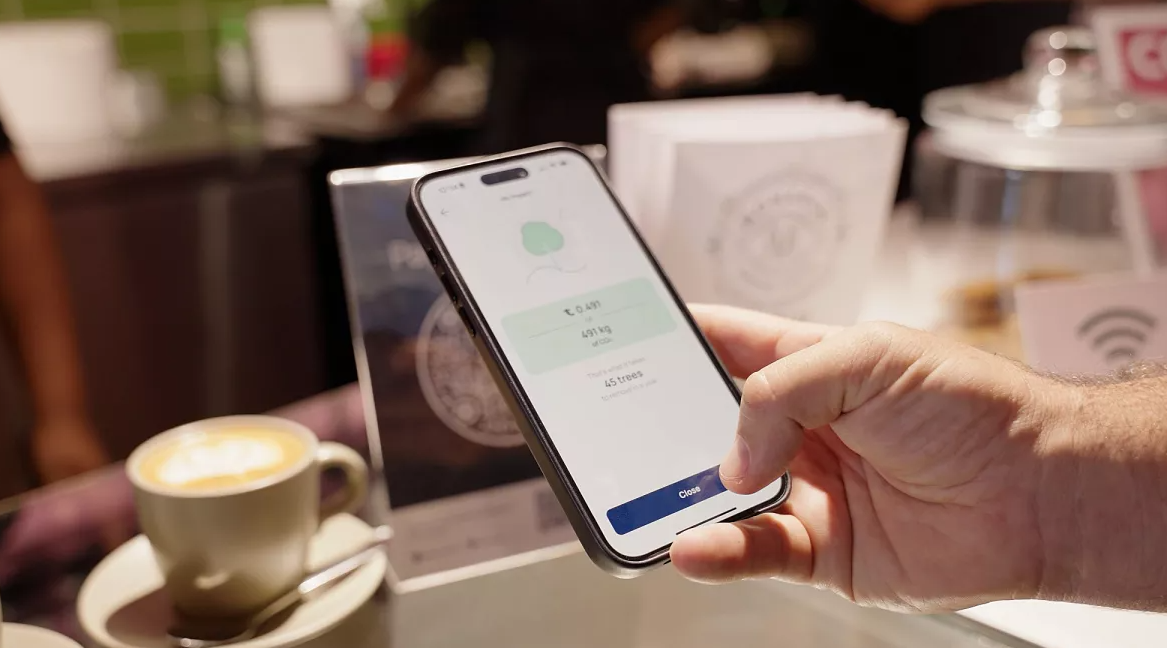
A Swiss-South African startup has launched a novel digital currency, Toco, which is backed by carbon credits. The initiative aims to integrate carbon offsetting into everyday transactions, potentially offering a financial tool to combat climate change. However, experts warn that a lack of oversight and market volatility could undermine its effectiveness.
A New Currency for Climate Action
Toco operates like a standard digital currency, allowing users to make purchases or transfer funds. Unlike conventional money, each Toco is tied to carbon credits, representing the removal or reduction of one metric ton of carbon dioxide. Users can also "retire" their Tocos, permanently locking away the associated carbon credit to offset personal emissions. Currently, around 50 businesses in Switzerland and Denmark accept Toco as a form of payment.
"We designed this initiative to create a transactional currency for day-to-day use," said Paul Rowett, co-founder of Toco. "By using Toco for routine purchases, individuals create consistent demand in the carbon market and directly support decarbonization."
How Toco Works
When users buy Toco with traditional currency, the Carbon Reserve, a Swiss-based non-profit, uses the funds to purchase carbon removal certificates. These certificates, issued by independent verification bodies like Verra and Gold Standard, confirm that a specific amount of CO2 has been removed from the atmosphere through initiatives such as reforestation and direct air capture.
Toco's value is backed by these certificates, making it an asset-based currency similar to historical gold-backed monetary systems. The initiative's goal is to integrate environmental responsibility into the economic system without compromising economic growth.
The Role of Carbon Trading
The concept of carbon credits dates back to the 1997 Kyoto Protocol and was further institutionalized with the EU Emissions Trading System (EU ETS) in 2005. While carbon markets have facilitated emissions reductions, they have also faced criticism for enabling corporations to offset emissions rather than transition away from fossil fuels.
Electric vehicle manufacturer Tesla, for example, generated $2.8 billion in 2024 from selling carbon credits, raising concerns about whether such mechanisms truly drive decarbonization or simply allow companies to continue polluting.
Potential Risks and Challenges
Despite its ambitious goals, Toco's reliance on voluntary carbon markets raises concerns. Unlike compliance markets like the EU ETS, voluntary carbon markets allow companies and individuals to buy credits to offset their emissions without legal obligations. This system has been criticized for its lack of oversight, and research suggests that some carbon credit projects fail to deliver real emissions reductions.
"Toco is an interesting initiative, but it risks further financializing a common good like carbon reduction," warns Emilios Avgouleas, a researcher specializing in international financial markets. He cautions that linking digital tokens to carbon credits could increase market volatility, making both assets more unstable.
Additionally, the credibility of carbon credits remains a contentious issue. Studies have found that fewer than 16% of investigated carbon offset projects actually reduce emissions as claimed. "The whole idea that the climate can be treated like an account is fraught with uncertainties," says Steffen Dalsgaard, a researcher at the IT University of Copenhagen.
Transparency and Regulation
To address concerns, Toco employs a permissioned blockchain for transaction tracking, ensuring transparency and security. Unlike some cryptocurrencies, Toco requires user verification and is regulated by the Swiss Financial Market Supervisory Authority (FINMA).
Rowett believes that integrating Toco into daily transactions could have a significant impact. "If 190 million Europeans bought just one cup of coffee a day using Toco, that would generate $50 billion in demand for carbon mitigation," he said.
The Future of Carbon-Backed Currencies
While Toco presents an innovative approach to financing climate action, its success will depend on the integrity of the carbon credit system and the willingness of consumers and businesses to adopt it. Experts emphasize the need for rigorous verification mechanisms to ensure the effectiveness of carbon offset projects.
As climate change accelerates, financial innovations like Toco may offer new ways to align economic growth with environmental responsibility. However, whether this model can scale effectively and drive meaningful emissions reductions remains to be seen.